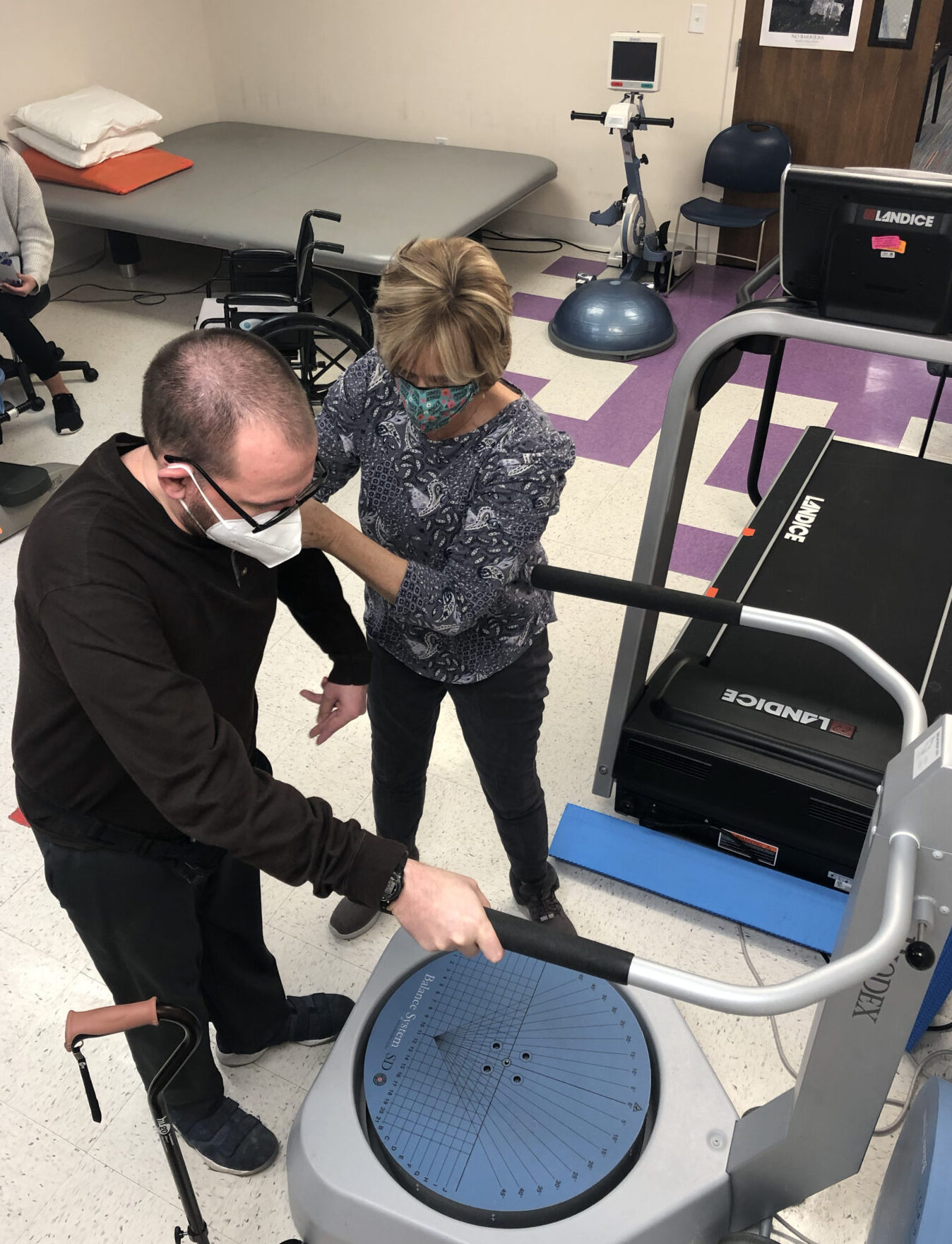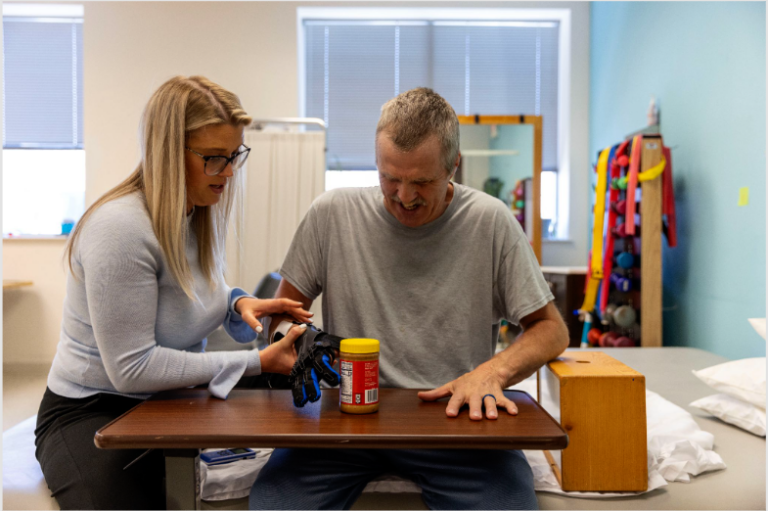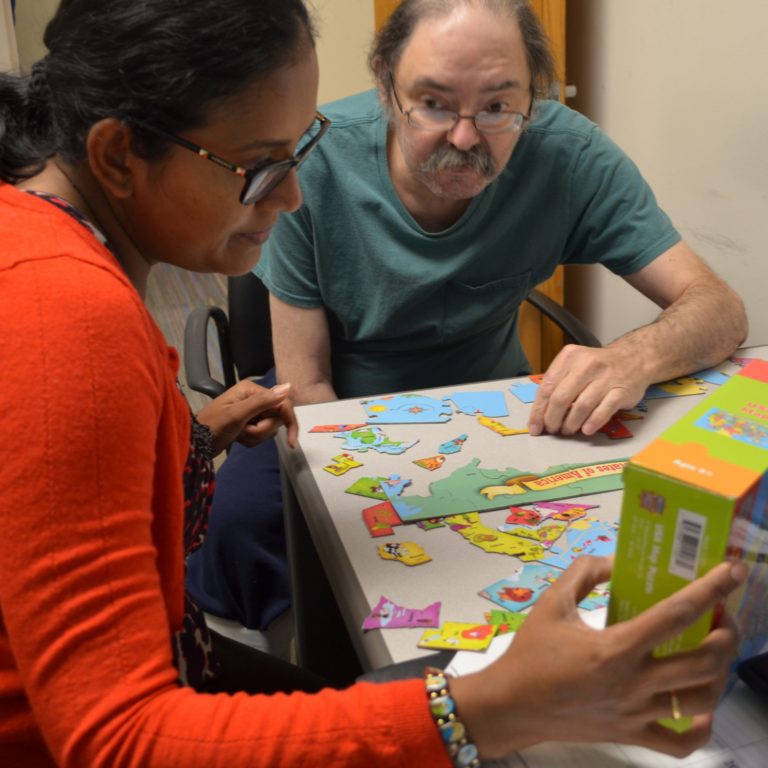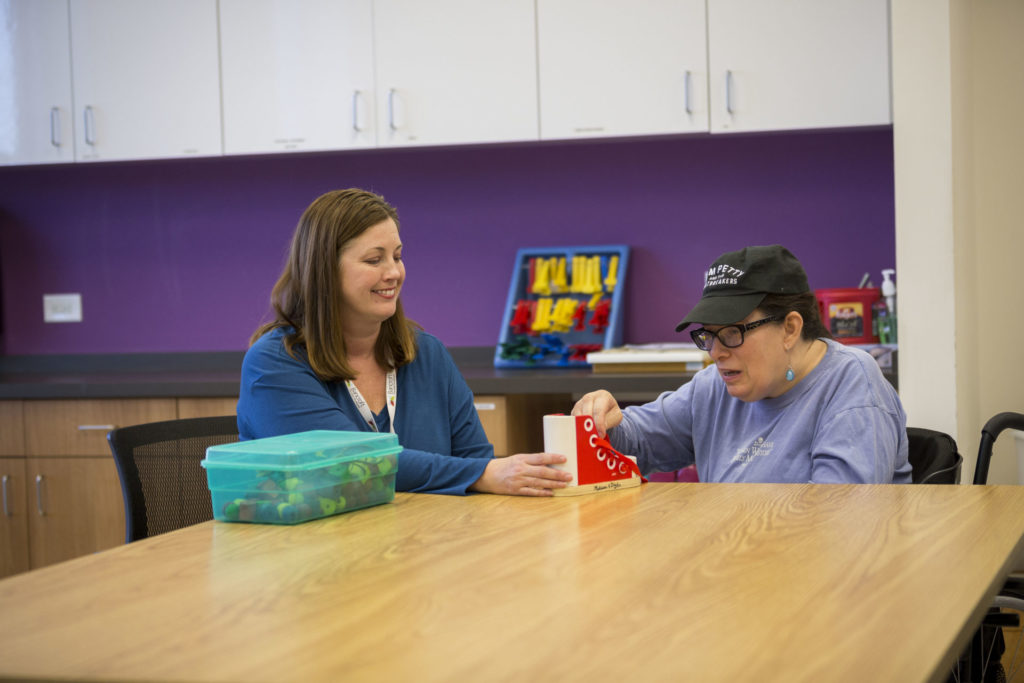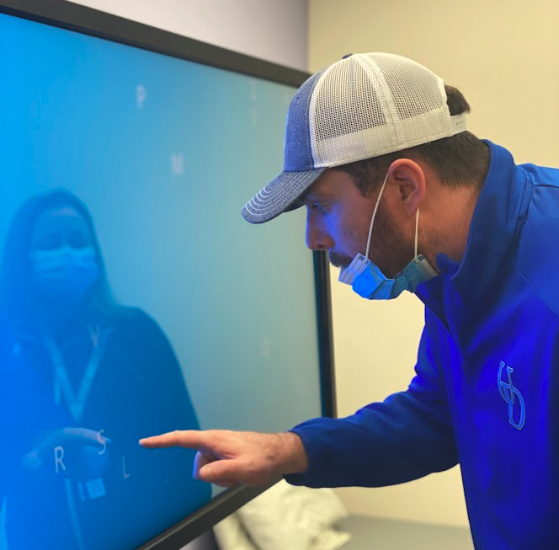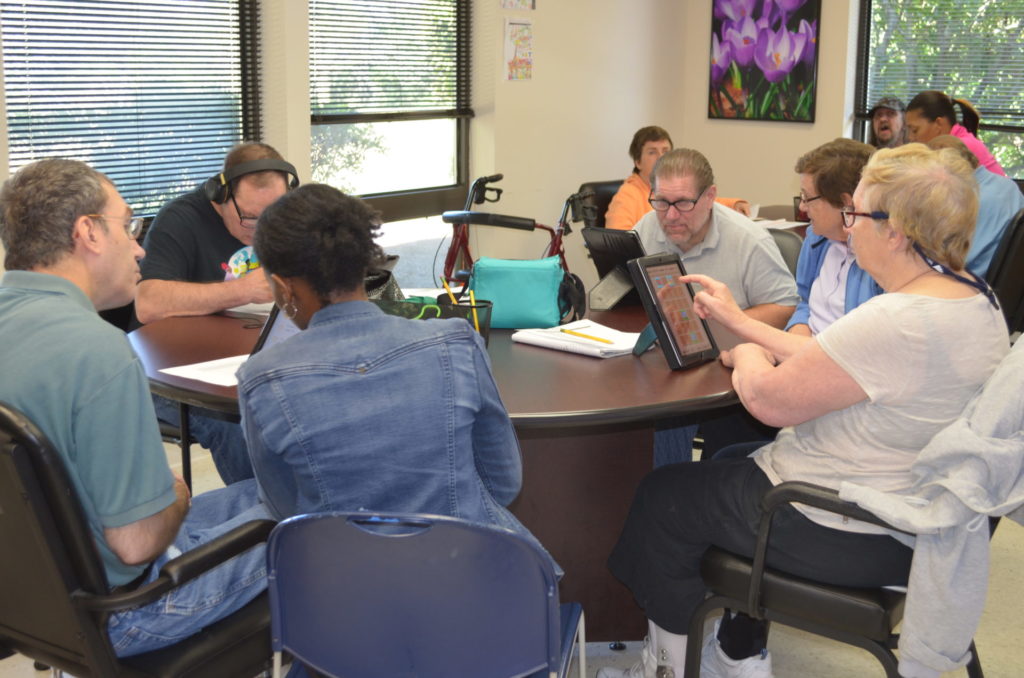–Have you ever sat in a room with a mother of an 18-year-old who sustained a traumatic brain injury after being hit by a drunk driver, knowing her child’s life has been ripped apart? And then following intensive rehabilitation, hear her boast of his newfound job skills and friendships?
–Have you listened to a wife sob, wishing for the robust life she and her husband shared before a massive stroke robbed him of his physical abilities and mental acuity? And then see her joy as he rediscovers his voice?
–Have you witnessed a man’s anger and resentment at once being a brave and active member of the U.S. military and now physically and mentally injured following a ski accident during leave from the base? And then witness his pride as he ticks off his recent accomplishments?
–Or have you met people who appear normal, but who are forgetful or distracted, get lost, can’t manage money or who are unable to accomplish daily tasks and life skills? And then see them draw on a new memory retrieval or coping skill?
These and interactions just like them are commonplace at Bancroft NeuroRehab where people with traumatic and acquired brain injuries are working to recover from their injuries, rehabilitate cognitively and reconnect with family, friends, work and community.
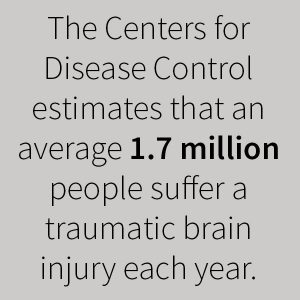  |
Neurorehabiliation Maximizes Recovery and Restores Abilities
The Centers for Disease Control (CDC) estimates that an average 1.7 million people suffer a traumatic brain injury each year, with 52,000 such injuries resulting in death and another 275,000 requiring hospitalization. Concussion accounts for 75% of brain injuries, most of which are minor enabling the patient to fully recover with adequate rest and avoidance of additional injury.
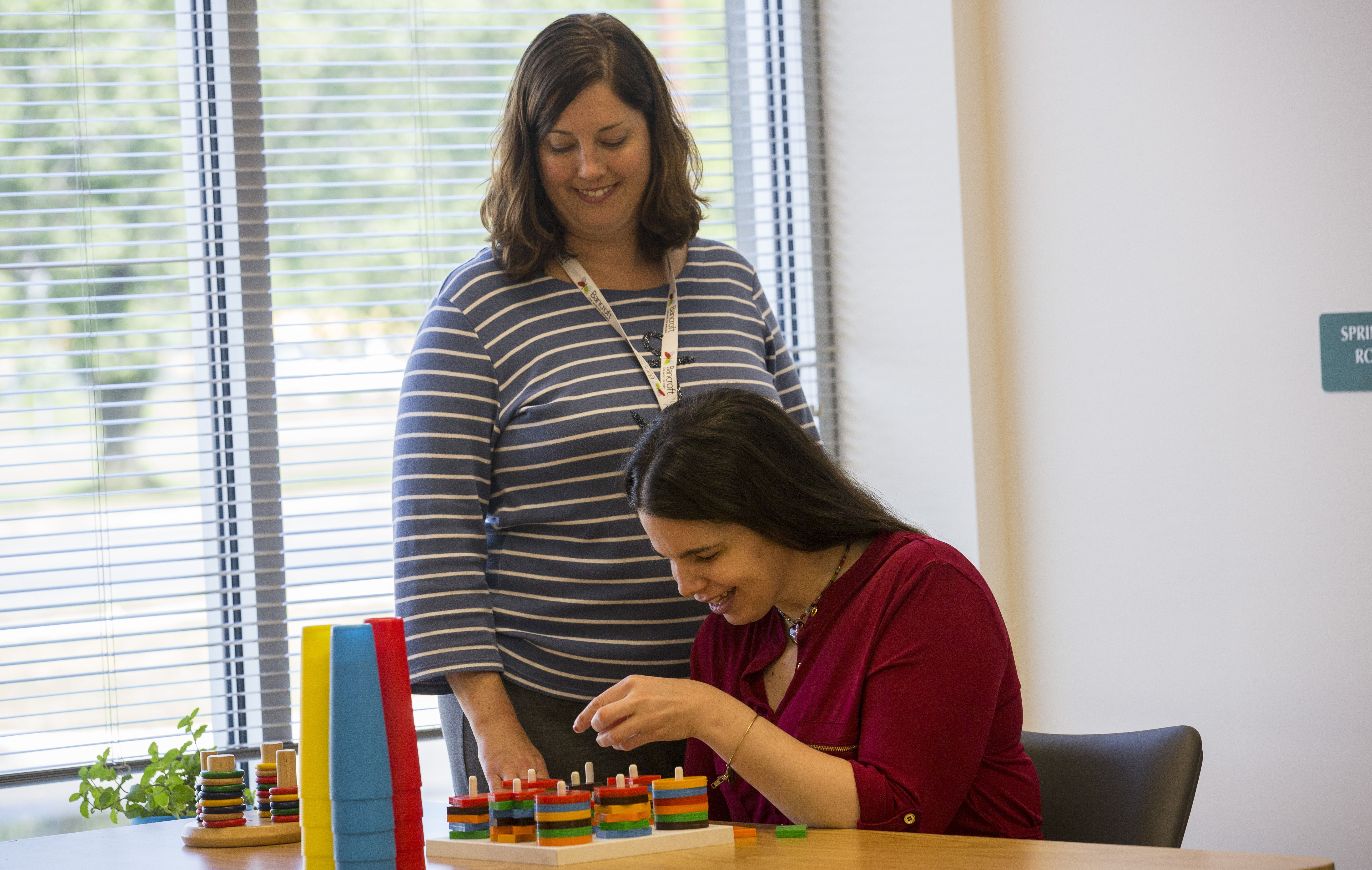  |
A brain injury can affect everything. The ability to walk, talk, think, control emotions, interact with people and manage daily life activity. Millions of Americans live with lasting impairments, and many will require lifelong medical, psychological, and rehabilitation services.Rehabilitation following these injuries is critical to maximize recovery and restore abilities. Rehabilitation could involve neurologists, neuropsychologists, physical therapists, speech therapists, occupational therapists, and cognitive rehabilitation therapists. Outcomes are improved when family members are engaged and invested in their loved one’s success.
Sustainable Funding is Crucial to Patient Progress
While brain injury rehabilitation should begin as early as possible following the injury, patients can make meaningful progress and regain skills through rehabilitation even many years later. It can be a pain-staking process, and it can take years of consistent and focused rehabilitation, building on each new skill to begin work on the next.
Without appropriate and sustainable funding for expert brain injury rehabilitation, the burden on the patient and his or her support system can be overwhelming and, in many cases, interfere with rehabilitation gains. In the end, it is the patient who loses the most in the absence of an appropriate rehabilitation plan, often losing the will to work hard and the spirit of positivity.
Economic Impact
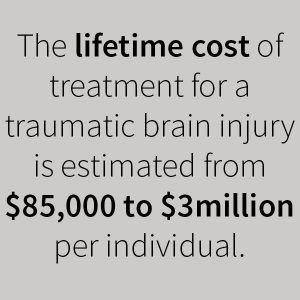  |
Research shows that failing to contribute to family and community and a return to being a productive member of society after a brain injury has a significant economic impact on the patient, their families and society as a whole. The lifetime cost of treatment for a traumatic brain injury is estimated from $85,000 to $3 million per individual. No doubt, the lifetime cost of care for people with brain injury decreases as independence is regained.
Reducing the Unemployment Rate
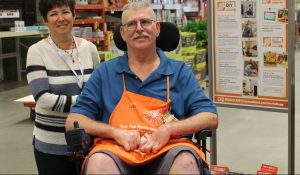  |
The unemployment rate for the average adult with brain injury two years after the injury event is 60 percent. With appropriate care and rehabilitation, the chances of returning people to work, lessening dependence on government assistance programs, and regaining independence will decrease the lifetime cost of care for people with brain injury.
Bancroft NeuroRehab provides rehabilitative services, including residential, clinical, outpatient and day support, to more than 400 individuals a year through four New Jersey locations.



